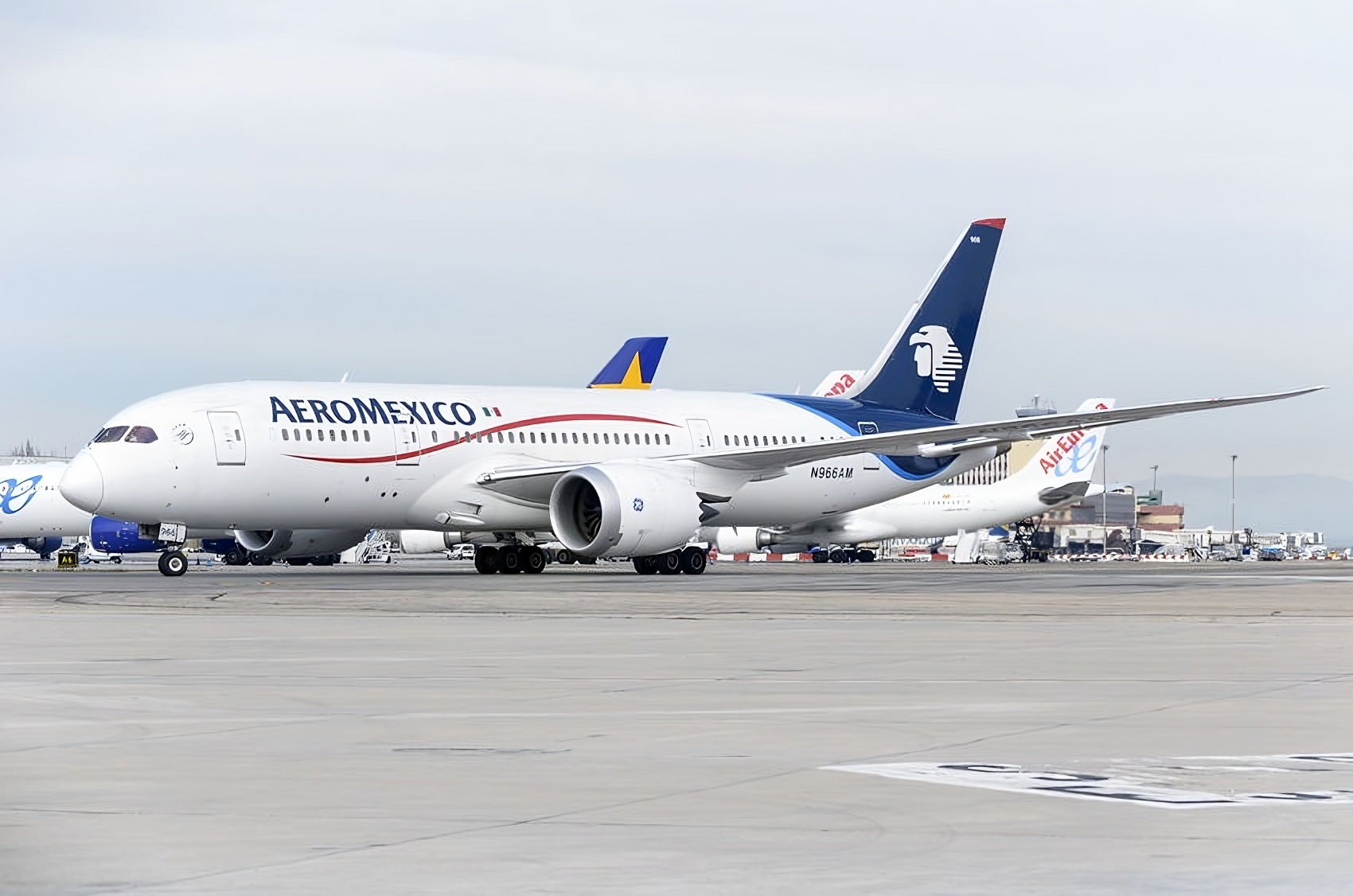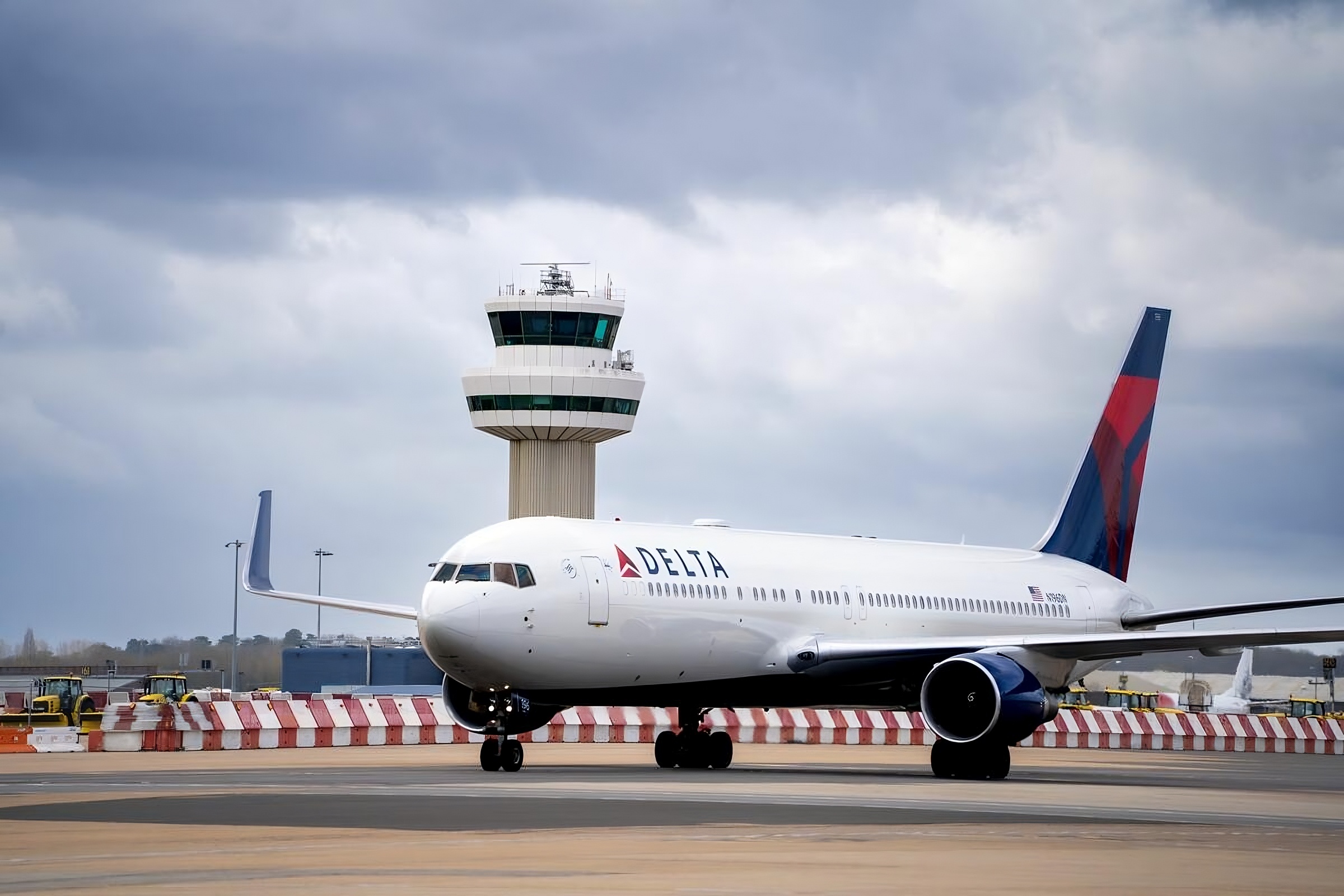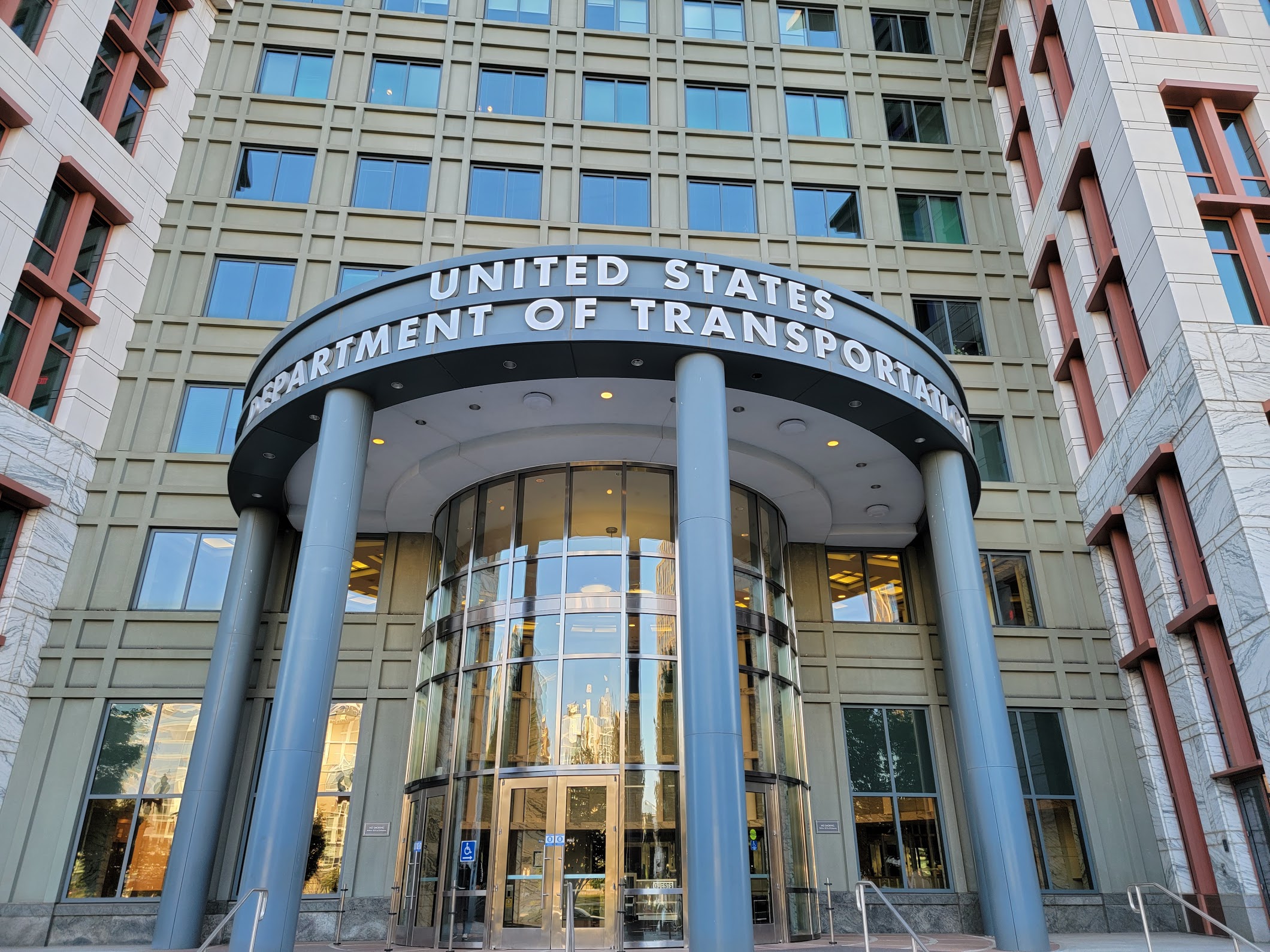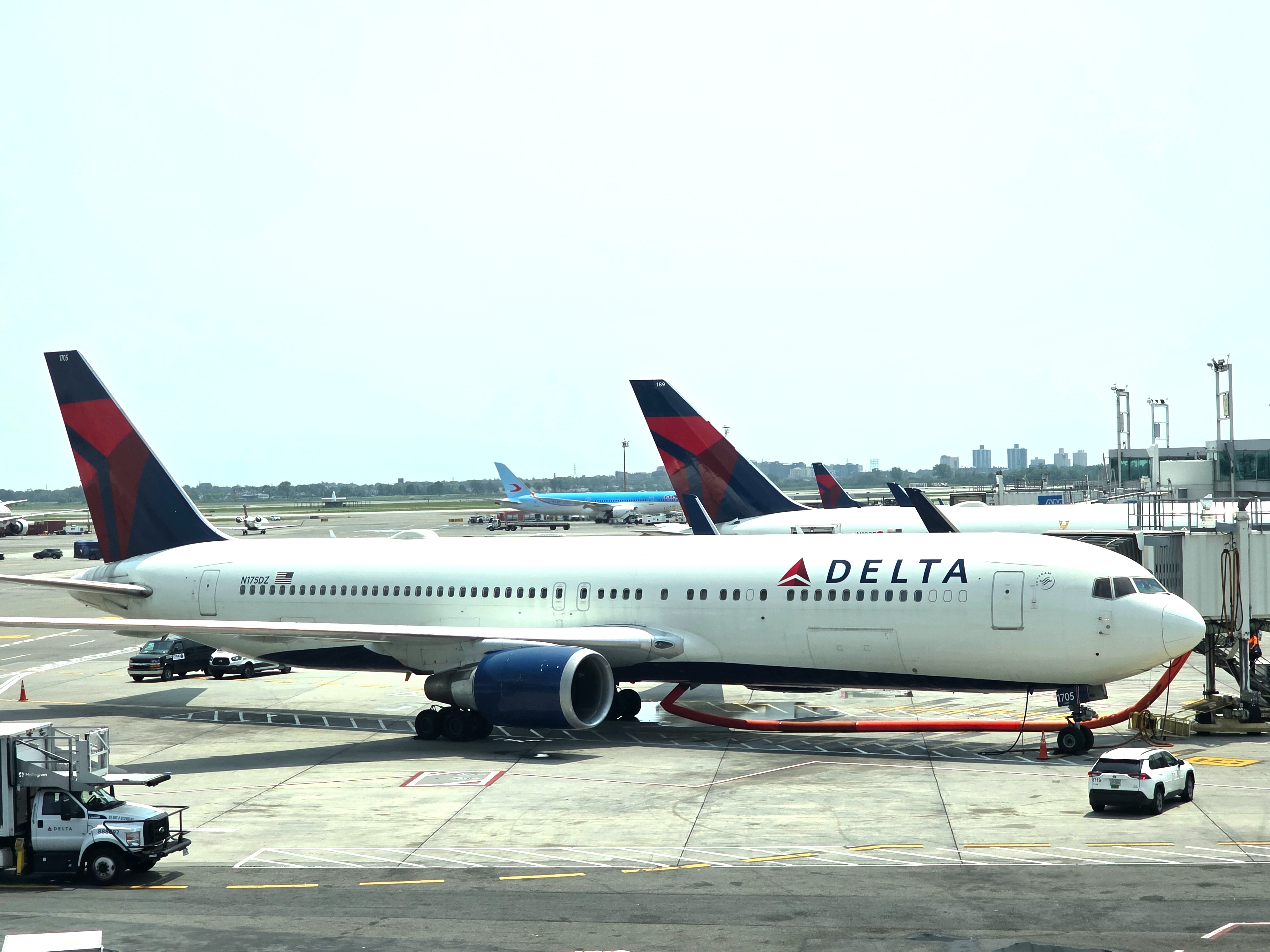As part of a process begun under the Biden administration, the Department of Transportation issued an order a month ago that the Delta-Aeromexico antitrust-immunized joint venture has to terminate by January 1, 2026.
Delta owns 20% of Aeromexico and can keep this stake, can keep codesharing, and can maintain its frequent flyer partnership. They just can’t coordinate on schedules and pricing.
The two airlines have now opened a filing with the 11th Circuit Court of Appeals to challenge this ruling.
- DOT claims that the Delta-Aeromexico partnership gives those two carriers an unfair competitive advantage in key U.S.–Mexico City markets, leading to higher fares, reduced capacity, and barriers to entry for other airlines.
- DOT cites specific interventions by Mexico that exacerbate the competitive imbalance: Mexico’s withdrawal or reallocation of slots at Mexico City’s Benito Juárez airport (slot confiscations) without transparent rationale; reassignment of cargo operations at Mexico City; successive reductions in allowable aircraft movements at the airport.
- And they contend this is in conflict with the U.S. – Mexico Open Skies agreement, while Mexico says they’re just trying to manage congestion at the airport.

If Mexico is in violation of its Open Skies agreement, DOT says that the market is no longer open to competition and that allowing two partners that together control a majority of flights no longer makes sense.
Delta argues that the DOT has invented a requirement for Open Skies agreements between the U.S. and home country of whatever airline is under consideration as a condition of an antitrust-immunized joint venture. That’s not exactly true.
And it makes for an interesting history less of how we got to where we are with these partnerships that allow U.S. and foreign carriers to collude (e.g. United/Air Canada/Lufthansa; American/British Airways/Iberia/Finnair/Aer Lingus; United/ANA; American/Japan Airlines; Delta/Korean Air; Delta/Virgin Atlantic/Air France/KLM).
- DOT has discretion, but is not required, to grant immunity for these agreements.
- DOT set a standard that includes Open Skies and has applied it consistently for forty years.
- And, in fact, it was Delta itself via merger partner Northwest Airlines that advocated this standard in creating the first one.

The Department of Transportation has an odd power to grant antitrust immunity between U.S. and foreign airlines. This is included in the Airline Deregulation Act, and is an artifact of international price fixing as standard in the industry. (Just as pre-deregulation, the federal government set domestic airfares, international airfares were set through industry group IATA.)
DOT does not have to use this power. The first antitrust-immunized joint venture was between Northwest and KLM. After the Supreme Court’s 1984 Copperweld v. Independence Tube Corp. decision held that a parent company and its wholly owned subsidiary are not capable of conspiring under the Sherman Act (i.e., they can be treated as a single firm for antitrust purposes), the two airlines presented antitrust immunity as a solution to the challenges they were having coordinating after KLM had invested in the U.S. carrier.
- Don Horn, who served as Assistant General Counsel for International Law at DOT for more than three decades, basically accepted this as an end-run around foreign ownership restrictions. When foreign ownership barriers were effectively the only roadblock to a lawful merger, DOT could grant antitrust immunity so the two carriers could operate jointly.
- The combined Northwest-KLM share of transatlantic traffic then was small, so there was little risk of them forming a monopoly. It wouldn’t have faced significant scrutiny had a merger been permissible.
- This became linked to Open Skies for two reasons – first, with an Open Skies treaty in place, markets were contestable and so antitrust immunity posed less competition risk, and second, DOT grants of immunity linked to Open Skies created an incentive for countries to go along with U.S. foreign policy which prioritized these agreements.

There’s no obligation for DOT to grant antitrust immunity. The thrust of much of Delta’s argument is consistency in DOT policy but to be consistent they need to require Open Skies! And their position is that these arragenments are not in the public interest without it.
Delta says DOT shouldn’t have fixated on competition at Mexico City, but DOT says that it’s the centerpiece hub of the joint venture where Delta and Aeromexico control 60% of slots and where the Mexican government’s interventions (slot confiscations, cargo ban, opaque capacity cuts) make flights between the U.S. and Mexico City not meaingfully contestable with a joint venture in place – and that this creates risks for competition in other Mexican cities. A court may not have to grant total deference to DOT here, but DOT’s interpretation of the facts is certainly reasonable and lies within an area in which they have significant discretion and no obligation to grant immunity.
Delta argues ‘whataboutism’ with Tokyo Haneda and London Heathrow? But DOT says the Mexican government is actively distorting compettiion in ways that undercut the original 2016 findings that granted antitrust immunity to the airlines, and that congestion itself is not the same as government-driven market access distortions.

Delta says the DOT should have considered less punitive measures, but DOT says they did consider them and rejected them believing that the core competition problem would remain intact.
Finally, they debate the evidence supporting DOT’s conclusions. DOT, though, says that most consumer benefits (which is a key standard at play) accrue wihtout antitrust immunity. The airlines can have frequent flyer partnerships and codeshares for instance – but that the extra benefits promised by antitrust immunity had not actually materialized over the past decade since growth in capacity with the JV has actually underperformed relative to legacy airlines and low cost carriers. So while Delta argues methodology of studies, DOT says we can observe the actual effects.
Ultimately Delta might be able to use the legal process to delay terminating their joint venture, which buys them additional time to lobby for a different outcome. But purely on the legal merits Delta doesn’t seem to have much of a case though I’d love to hear from antitrust experts in the field among my readers.


Apparently Delta didn’t make a large enough contribution to the Glorious Leader to get the outcome they desired. Simple solution > give the Glorious Leader even more money and Delta will get the outcome they desire. Welcome to the 2025 reality of politics in the UST. All hail our Glorious Leader.
Well, it’s safe to say Delta won’t be getting an invite to the WH from Trump anytime soon. For a company whose HQ is in Republican Georgia, Delta doesn’t play the political game well at all.
Ooh-wee! Who doesn’t enjoy legal analysis on appeals about joint ventures. Gary’s got it all on this one (including a compelling use of ‘whataboutism’!) @Tim Dunn, you ready to ‘Keep Climbing,’ sir? @Mike Hunt, we expect a full dissertation on the ‘good ole boys’ at the 11th Circuit. Anyway, usually, more competition is better protections for workers and consumers, so…
@Lucky Larry — Sir, you forgot to cite the applicable U.S. Supreme Court precedent that supports your (hyperbolic, but, in all honesty, not that far off) assertion: “Snyder v. United States, 603 U.S. 1 (2024), was a United States Supreme Court case in which the Court held 18 U.S.C. § 666 prohibits bribes to state and local officials but does not make it a crime for those officials to accept gratuities for their past acts.” So, remember, pay your ‘gratuities’…if you want to ‘win.’
¡Sigue subiendo! (Spanish speakers please correct me if that’s not correct for my education)
@L737 — ¿Qué lo que? …wawawa
Delta has a point and pointing to the antitrust experts doesn’t answer the question. Experts in any field are largely people that understand the status quo and choose to stick to it.
DL’s point is that the federal government has failed to extract its tenacles from the US airline industry almost 50 years into deregulation.
The DOT and DOJ plus a bunch in Congress have had preconceived notions about what they want from the US airline industry and force changes to get them to that point whether those changes are supported by law or not.
The US should have never signed an Open Skies agreement with Japan given that there is no open access to HND and the US government imposes more route restrictions than even the Japanese do at HND on their own airlines. Same thing can largely be said about LHR but at least you can buy your way into LHR if you can find a seller.
Ironically, DL will probably find support from airlines other than AA and UA who have been excluded from joint ventures, don’t have access to the choicest airports and also see the status quo increasingly limiting their ability to compete with the big 3. and the issue is not just about international access but mergers such as B6/NK and the NEA. There is far less in settled law and more in government heavy handedness that influenced those decisions.
DL might just be stalling the process but they also might force a real review of the way the airline industry is viewed and regulated – whether the feds realize it or not.
DL is more secure about its future than any other US airline to be able to push for changes not just for DL’s benefit but for the benefit of other US airlines.
@Tim Dunn
Funny that Japan and Tokyo are the first airports that come to your mind. HND has limitations in capacity and those restrictions are equally placed on both US and Japanese airlines. They both have an equal number of bilateral service for that reason.
If you were to pick out an airport that is now looking to violate this which fits exactly what you’re claiming, then the poster child is Amsterdam which is unilaterally imposing reductions on flight movements for environmental reasons. When AMS was looking to make reductions for this reason, they disproportionately impacted foreign airlines in favor of KLM. B6 argued this and clearly had a great point as they were provided multiple slots at AMS despite the airport being “at capacity”. The Dutch government is now looking to rerun this effort but with more equal losses for KLM and foreign carriers, but I’m sure this will be contested. For instance, if you’re Indigo or Air India with increasing demand to Europe, why should KLM be allowed access to Indian airports with limitations on your potential service to Amsterdam?
@Tim Dunn — Please tell me Delta (or Boarding Area) pays you to contribute. Otherwise, wow, for the love of the game. Impressive. *slow clap*
1990
if I get paid, then you get a far bigger paycheck. I am here for the love of it all.
Jeremy,
The point about HND is that HND is far from Open; you can’t even buy slots as you can at LHR.
and, I know you love to throw mud, but the Dutch government has changed its processes for slot allocation and the DOT pulled back its complaint.
Mexico has also changed some aspects of its slot system and I am not going to defend if it is enough or not but there is a place for the US government to push for as much access as possible
The hypocrisy is that HND was created w/ the most strict access and that has not changed. Whether Japanese carriers are limited by that access is not the open.
And the DOT made it even more difficult for US carriers by refusing to allow them to transfer rights to other gateways; Japanese carriers can do that.
The DOT and DOJ very much have made up the rules on the fly based on the outcome they want and not connected w/ actual written laws but their biased interpretation – regardless of administration.
DL has every right to call that out – and state that there needs to be written guidelines which the DOT will equally enforce – and then rip up bilaterals that don’t meet those standards.
Mexico isn’t a one airport country but I generally like the approach that a country restricting their primary airport without distributing the pain fairly (cough Heathrow and BA) shouldn’t be allowed.
@Tim Dunn — Yup, just the ‘love of the game,’ here, too. Ah, the life of the commentariat…
@Tim
Your Haneda points are so old and dated. JapanUS treaty is like that because Delta threw a huge fit about not being able to move their Narita hub back to Haneda decades later AND because Delta lost their bid to pull JAL away from AA.
It’s one of the easiest things to google.
If Delta had pulled JL away, I have no doubt your cute little biased and ignorant tune would quickly change.
We get it Delta lost their bid to grab JL. Delta failed at their Narita hub. Is failing in Seattle. Delta can’t make HND flights work and is the only one to give one up (PDX) and also decided they couldn’t even make JFK-HND work so gave it to AA. And loudly told the DOT how badly all their HND flights were doing just a few short years ago.
Your crocodile tears are amusing, at best. But it’s little wonder you constantly go to your personal grievance where Delta got their asses kicked — TYO.
@MaxPower — You gettin’ paid, or just ‘love of the game,’ like Mr. Dunn, sir?
not paid, 1990.
But Timmy’s memory of history is a bit skewed sometimes. 😉
When you bring up an airport to compare to MEX, maybe don’t bring up the one where DL lost a hub, couldn’t even buy a potential partner, then tried to destroy the updated open Skies negotiations crying about how you failed at everything you’ve done in Tokyo thus far (and KE is the last partner you actually want though you wouldn’t know it from how Tim talks about ICN these days…) …. — Delta
Timmy’s skew is a bit like Delta’s skew “if we just state something it is correct” – they stated they would be 60% of the industry’s profits this quarter, they aren’t even 60% of the United + Delta profits this quarter, they are actually 59%. Lets hope American, Jetblue or Alaska don’t have any profits this quarter. Delta are drinking their own kool aid of arrogance.
Sorry I should clarify, they are 59.9% of the combined profits – so if Jetblue, AS or AA announce pretty much any profit they have lied.
@MaxPower — It’s undeniable that ‘United is the largest US carrier to Japan,’ in-part, thanks to their joint venture with ANA, and also because they happen to fly more jets there! But, but, but… there are not good signs for United in East Asia, with the ‘difficulties’ with mainland China, and losing another Star Alliance partner (Asiana, like SAS) due to its merge with Korean Air (SkyTeam) by 2027, as I’m sure you already know.
@Andy — Technically, it was mostly Flavor-Aid at Jonestown… but, point taken.
Max,
it is your typical hypocrisy that you conflate multiple issues and turn it into a “timmy bad” and “DL screwed up” routine.
No, Max, the Japanese made the decision to open the crack for US-HND flights long before the full current allowances that are in place
The DL proposal to merge w/ JL had precisely nothing to do with the Japanese decisions regarding HND access. Precisely none. Post these google links if you think otherwise.
DL lost its beyond Tokyo flights because the Japanese said there is not enough slots to add beyond HND flying. JL and NH have far less connecting opportunities beyond Tokyo at HND than at NRT.
and you fail to note that DL still has the most flights on its own metal from HND to the US among US carriers.
And DL did build a JV with KE that is by far larger than any JV involving AA or UA across the Pacific.
and Andy,
it is embarrassing that you even brought up UA’s earnings. System TRASM was down 4.3%, PRASM was down 5, and ASMs were up 7%. Domestic RASM was down 3.3% on 6.6% more capacity. UA just blew it on their domestic system and that brought the whole apple cart down.
UA continues to fly 10% more ASMs than DL and post worse financial results. They cannot add the capacity on their domestic system and maintain the revenue performance that DL has. I have said for years that would be the case – and this quarter proves YET AGAIN that I am right.
Oh there’s Timmy, per usual
No. The failed Delta attempt to lure JAL away from a superior alliance had nothing to do with HND allocations years later. I never said it did. I said Delta kept losing in TYO and it influenced their future daytime HND policy years later. Which is true…
Delta’s reaction to that and their failed Narita hub? Yes. Had everything to do with their major objections and crying to DOT about HND and the reason “open skies” is what it is today with Japan.
Delta had everything they could ever want at NRT and could add whatever they wanted. Delta was just aware of how weak their NRT hub was and they wanted that at HND and didn’t get it despite their desperate crying based on ww2 treaties for Northwest.
They couldn’t buy JAL’s love. Delta tried. Fun fact. AA never had to give JL the money that beat DL out in their bid. The DL Narita hub was a failure so they just cried to DOT and now can’t even make their HND slots work, per their own DOT filings.
Take a look at HNL-HND fares, Tim. Basically any day. Delta can’t make even tourism markets work.
and oh Tim… I don’t fail to note Delta’s crying to the DOT about how awful they are in TYO compared to AA and UA. Delta wrote volumes about that to the DOT. Delta has the most slots vs AA/UA alone but wrote entire dissertations to the DOT about how disadvantaged they are to AA and UA at HND. How about you not try to do your usual “delta has the most HND slots among US carriers” when your own carrier cries about how awful they are vs AA and UA to the DOT and how they HAVE to be able to move slots around because of how awful their flights perform?
You truly live in a world disconnected from reality, Max.
DL and JL was blocked because they were both too large to allow competition. Instead, JL hooked up w/ the spineless, impotent AA which has allowed DL to create a far larger CONNECTING operation at ICN while still operating more flights from HND to the US on US carrier metal.
I don’t know what “it” is but your statement is categorically false.
“…it influenced their future daytime HND policy years later”
if “it” is Japan, Japan did not change anything because of what DL did.
If “it” is DL’s HND strategy, daytime flights were not available until well after DL pulled down NRT to the hubs that have DL service to HND today – plus PDX which is the only Tokyo market that DL withdrew from.
DL’s “dissertations” were about AA and UA using their JVs to boost their size. Funny how you want to include those JVs and even AA/AS which isn’t even a JV if it is talking about AA or UA’s size but call it evil for DL to mention those JVs if it means that DL succeeds in swaying the DOT.
Who cares what fares are HNL-HND. DL doesn’t really want to be there but isn’t about to give up a route as long as the DOT plays stupid games.
Despite flying HNL-HND, DL managed to generate a 50% larger profit than UA even though UA flew 10% more capacity.
When you and everyone else gets around to admitting that UA flies a lot of trash capacity, then we will have an honest conversation.
UA dumped 7% more capacity into its system in the 3rd quarter and watched its profits and watched its RASM in every region and its profit go down – and UA STILL has a labor cost advantage because of the tens of thousands of underpaid UA union employees.
UA’s 3rd quarter financials were a revenue disaster, Max.
The sooner you focus on what everyone can see – including the market – which is that UA’s grow, grow, grow strategy isn’t working and won’t work.
DL simply beat UA at UA’s own game. And in the domestic, TATL, Latin and Pacific markets. DL added capacity but generated far better revenue performance.
You prove how much of a loser you are by manipulating history so you don’t have to deal w/ the reality that UA’s 3rd quarter financials were a disaster for an airline that incessantly talks about the failing business plans of other airlines and how premium UA is. Their earnings were anything but premium.
Feel free to argue about what happened in Japan w/ your distorted and manipulated view of history if it makes you feel better, powerless